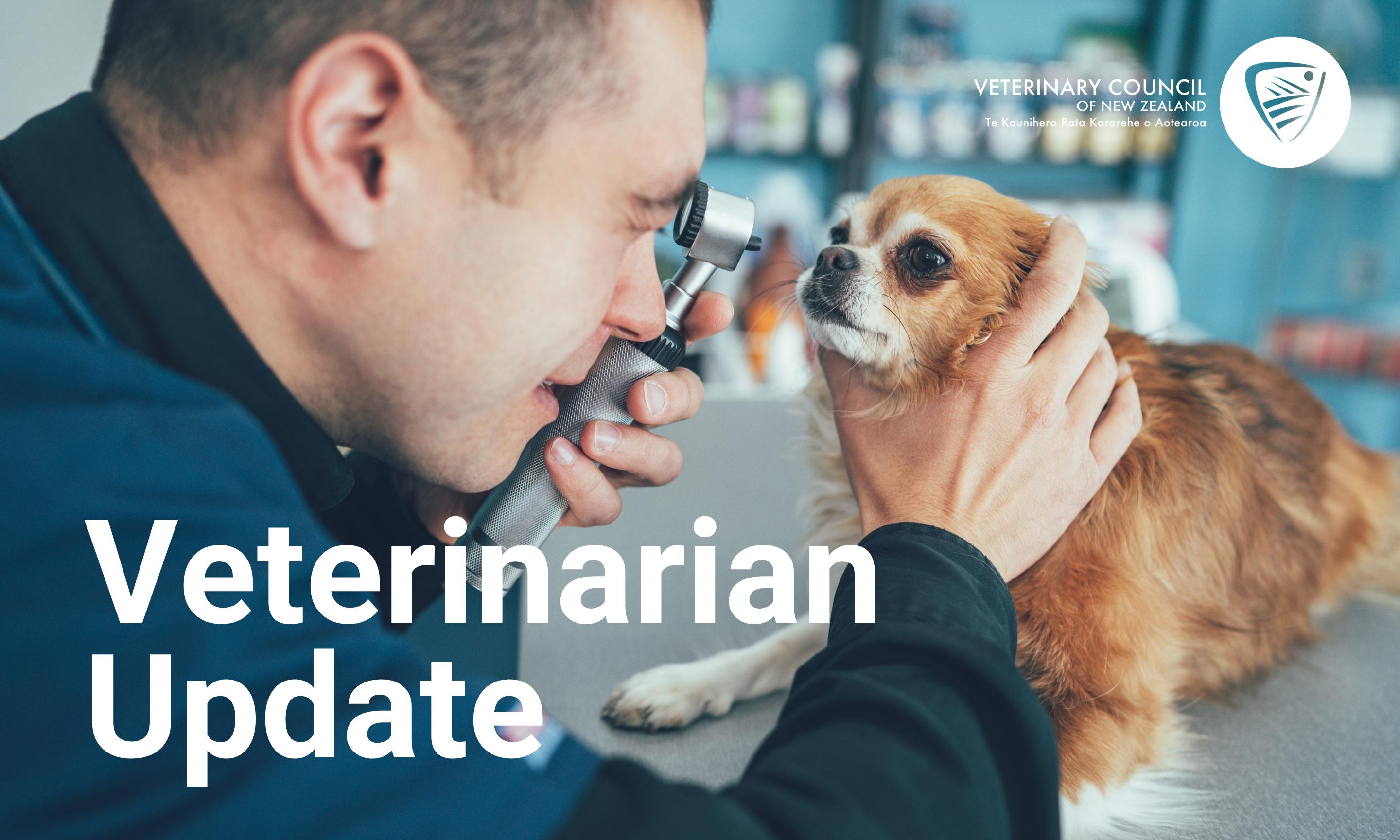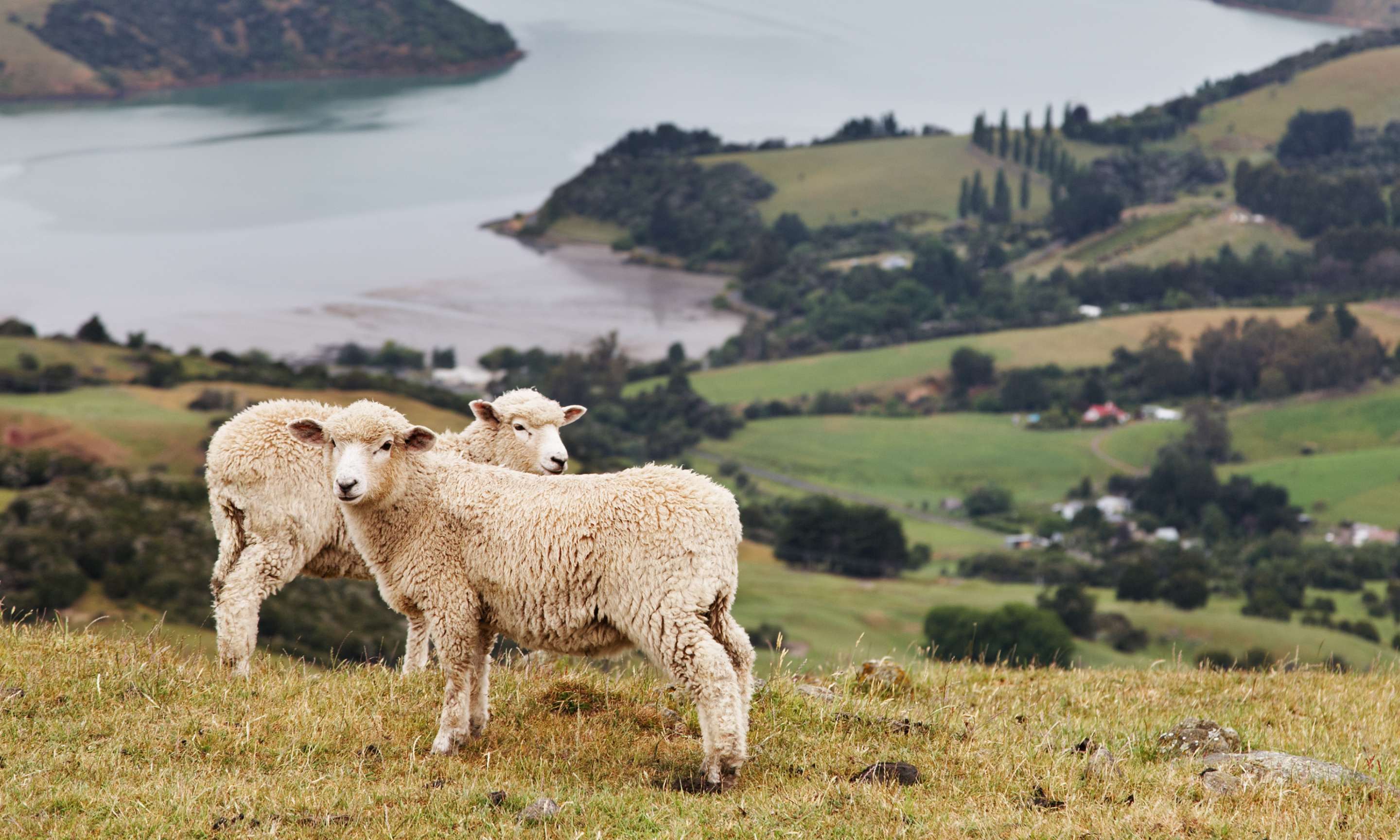
Update for vets: February 2023
Welcome to our February update. In this edition, we feature information about Cyclone Gabrielle, including relief available for veterinarians through the Veterinary Assistance Register, and support for farmers such as the Feed Coordination Service. We have also included our wellbeing snapshot videos, which we encourage you to watch, and information about New Zealand’s preparedness for Highly Pathogenic Avian Influenza (HPAI).
If you have any questions or need assistance with cyclone or wellbeing related-issues, please don’t hesitate to contact us.
Chief Veterinary Officer’s update on Cyclone Gabrielle response

Here at MPI, we’ve heard that communication is difficult and that you’d appreciate more information from MPI on the animal welfare work and how you can help.
MPI recognises the huge contribution veterinarians make as the on-the-ground healthcare providers to production and companion animals. You are also trusted by farmers and clients and your relationships with them are very valuable.
NZVA is a recognised support agency for MPI in its responsible role for animal welfare in emergencies. As a support agency, the NZVA is a part of the formal response structure in this cyclone emergency within the animal welfare sub-function. We have been in daily contact with this group to help to keep NZVA members updated.
If you’re observing flood-related animal welfare concerns, please call 0800 00 83 33. There is also an email address that you can use to make reports or to make contact on any matter with the response: [email protected] .
We realise that you may still not have been able to contact some of your isolated clients. The Hawke’s Bay CDEM has commenced daily helicopter flights into remote areas and 15 isolated communities have been identified. An MPI AWEM staff member will be on these flights and dropping off hard copies of needs assessment forms for animals. It is envisaged this will be done electronically once full connectivity is restored. MPI will contact veterinarians if the need for veterinary advice/treatment is identified during triage of the needs assessments and where the owner has no connectivity.
MPI’s general information on the flood response is here. www.mpi.govt.nz/cyclonerecovery
This includes information about the temporary animal shelter at the Hawke’s Bay Racecourse for companion animals established by MPI, HUHA and the SPCA.
NZVA also has flood resources here: https://nzva.org.nz/flood
Specific animal welfare information is here: https://www.mpi.govt.nz/funding-rural-support/adverse-events/cyclone-gabrielle-recovery-advice-support-and-funding-available/#animals
The functioning of this response, on such an unprecedented scale, is complex. I think it is important for us all to understand which agency has the lead in a particular response. In this case, the National Emergency Management Agency (NEMA) is the lead agency at a national level, and the local Civil Defence and Emergency Management (CDEM) groups lead at the local/regional level.
Here is an important document explaining how the animal welfare sub-function is expected to work within the (CDEM) structure. https://www.mpi.govt.nz/dmsdocument/51187-National-Animal-Welfare-Emergency-Management-Strategic-Plan-20202030
In addition, MPI has created regional animal welfare plans for each of the 16 CDEM regions. https://www.mpi.govt.nz/animals/animal-welfare/animal-welfare-emergency-management/national-and-regional-animal-welfare-emergency-management-plans/
There are a variety of roles that you may find yourself in, and all of these roles are important. You have an important job communicating with your clients, both those who are directly and indirectly affected by this natural disaster. You may also be working directly in the machinery of the response. Whatever you are doing, your work matters and you are making a difference.
You will likely be finding this very hard. That is because it is very hard, frustrating, and personally draining. Please support each other and your colleagues across agencies and government departments – everyone is doing their best. Not everything will go as planned or hoped. This is the nature of responses. Please keep feeding information in and keep raising issues. This may include communicating with us about any items that are in short supply in affected regions, or that are likely to be needed in increased quantities over the coming weeks and months due to these adverse events. You can use this email address for that [email protected]
I will send out another all-of-profession email in a week.
All the very best
Mary
Veterinary assistance register
Animal welfare has been incredibly important to veterinarians in the North Island since Cyclone Gabrielle hit. This includes animals that have been separated from their owners or have become unwell and injured by flood water or storm damage. Significant issues have also emerged for cows who could not be milked for several days.
Veterinarians and other veterinary professionals around the country have offered to help their peers, and the New Zealand Veterinary Association (NZVA) has put a call out to veterinarians affected by Cyclone Gabrielle to ask what support they need. It has started a register of people who are offering support so that the right people can be matched with vet teams who may need a hand. The Association is also sending out a survey to gauge the financial impact of the disaster on clinics.
It is working alongside local emergency management co-ordinators to ensure that any additional supplies or personnel are provided in a way that fits with the overall disaster response. Please contact NZVA if you would like to be added to the register to provide or receive support.
Cyclone relief
Below are some of the funds and support available to help get communities back on their feet after the Cyclone.
Farmer and grower recovery grants
Farmers, growers, and whenua Māori owners significantly affected by Cyclone Gabrielle are able to get support to kick-start recovery efforts.
The Government is providing $25 million for farmers and growers to undertake urgent work, including fencing, and clearing silt to save trees and vines. Details about this and a fact sheet and application form can be found here .
Rural sector funding
MPI is working closely with sector groups, including DairyNZ, Beef + Lamb New Zealand, Horticulture New Zealand, Federated Farmers, the Rural Support Trust and whenua Māori entities, to identify areas of greatest need. This funding for the rural sector is on top of an initial $4 million in targeted funding to help with urgent primary sector needs not being met by other organisations.
More information for sector and regional groups, with funding requests, is available here .
Feed Coordination Service
The national Feed Coordination Service has been restarted by MPI and Federated Farmers to help farmers source feed while recovering from the cyclone. More information about this service can be found here .
Wellbeing series snapshot videos
We’ve worked with Dr Fiona Moir and Dr Renske van den Brink of Connect Communications to create a video summarising the key topics that were covered during our wellbeing webinar series. There are also two roleplay videos where Fiona and Renske work through some common communication challenges, in a veterinary context.
We encourage you to watch them and share with your teams.
View more

New Zealand is free of HPAI
You may have noticed media interest in Highly Pathogenic Avian Influenza (HPAI), its transmission to mammalian species, and its zoonotic capability.
New Zealand has never had a case of HPAI and changes in the disease overseas are being monitored and planned for. The risk of HPAI coming to Aotearoa is low.
You can read about New Zealand’s preparedness for HPAI and MPI’s ongoing surveillance here.
Messages from others
The items below come from other organisations. We have agreed to share them with veterinarians because they may be of interest. If you have any questions or concerns about them, please contact the organisation directly.
Webinar: Allied Veterinary Professionals (AVPs) in clinical practice: what we currently do and what we can do better
As veterinary professionals, we all share a strong commitment to providing high quality veterinary services to achieve the best possible outcomes for our patients, clients, and veterinary teams.
However, we continue to face many challenges around being able to sustainably meet the growing demand for veterinary services in New Zealand, while still allowing ourselves to maintain healthy and balanced lifestyles.
Massey University, supported by the MPI Sustainable Food and Fibre Futures grant, surveyed New Zealand veterinarians, veterinary clients, allied veterinary professionals (nurses and techs), and practice managers to get their opinions on AVP usage and explore perceived barriers to increasing their clinical responsibilities.
Come along to one of the webinar’s being held on March 15 to find out about the survey results and a discussion about the challenges of improving AVP usage as a way to help alleviate the current veterinary shortage.
Join the Discussion
Wednesday 15 March, at one of the following times that works best for you:
12pm
https://massey.zoom.us/j/89866944740?pwd=NFBBNi9GVFFKdmI3NmoxV0daelpJdz09
7pm
https://massey.zoom.us/j/84327941773?pwd=cnhIVDBBS3lBTEdOR2hyaDF4Tk9Jdz09
Thank you
We hope you found this newsletter interesting and informative. If you’d like to provide feedback or send us a topic or story for next time, please email [email protected]
Please also contact us if you have any questions or need support.